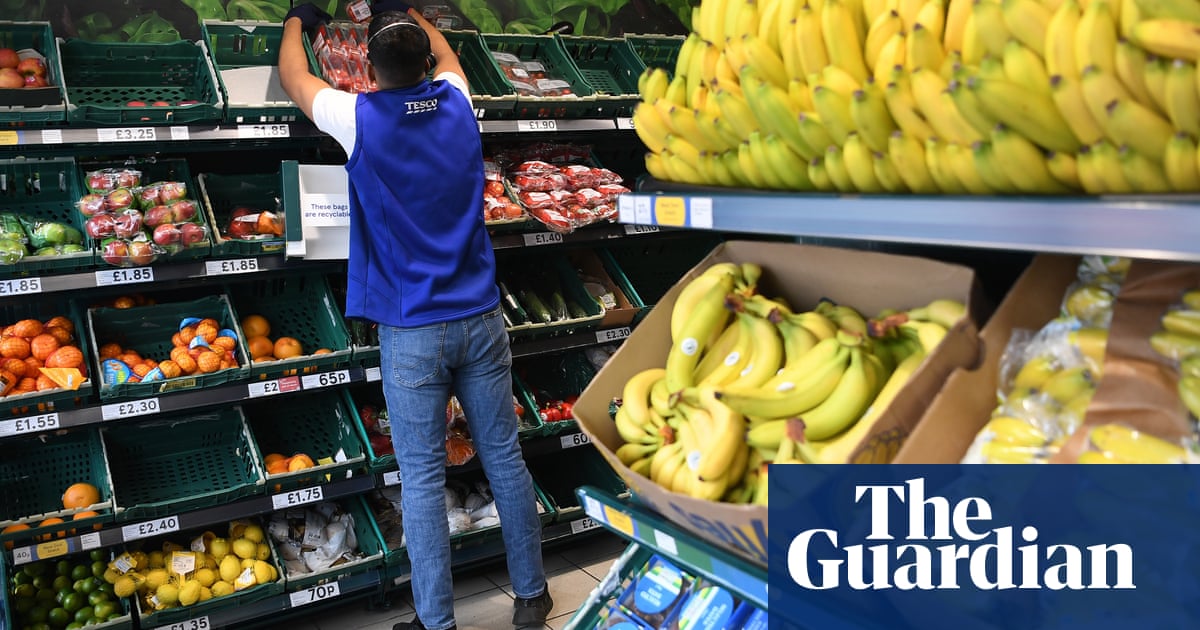Britain’s next government is poised to benefit from easing pressure on household finances after a slowdown in inflation in stores and a fall in fuel prices, but costs remain “too expensive” for many families.
Figures from the British Retail Consortium (BRC) show that annual UK shop price inflation cooled last month to 0.2%, down from 0.6% in May – the slowest pace since October 2021 – as retailers cut the prices of many of their key products, including butter and coffee.
Coming before Thursday’s general election, separate figures from the RAC show that petrol and diesel prices fell for a second straight month in June to ease pressure on families affected by the cost of living crisis. The organisation said, however, that filling up on the forecourt was still “too expensive” in England, Wales and Scotland.
According to the RAC’s monthly fuel watch, the average price of petrol in the UK at the end of June was just under 145p a litre, down from 148p at the start of the month. Diesel dropped from nearly 154p to about 150p.
“Fuel prices are still nowhere near where they should be despite falling for the second consecutive month,” the RAC said. It highlighted the lower cost of filling up in Northern Ireland, where petrol is 4.5p a litre cheaper on average and diesel 8p cheaper than in the rest of the UK.
The RAC’s head of policy, Simon Williams, said: “While it’s good news prices at the pumps have fallen for the second month in a row, this also leaves a bad taste in the mouth because we know drivers in Great Britain are continuing to get a raw deal as both petrol and diesel are still much more expensive than in Northern Ireland.”
He said prices at forecourts owned and run by Shell and BP were the most expensive, highlighting Competition and Markets Authority data showing that Shell-owned sites were the most expensive in the UK.
“We remain baffled how the very same fuel can be sold for such vastly different prices by the biggest retailers, whether they’re run by supermarkets or the world’s largest oil companies,” he said.
Rishi Sunak has made lower inflation the cornerstone of the Conservatives’ general election campaign after a return in the official headline rate to the Bank of England’s target of 2% in May, down from a peak of 11.1% in October 2022.
The shadow chancellor, Rachel Reeves, however, has said pressure on household finances remains “acute” as average prices remain significantly higher than before the cost of living crisis took hold.
after newsletter promotion
According to the latest snapshot from the BRC, food inflation slowed to 2.5% in June, down from 3.2% in May, in the 14th consecutive deceleration for annual growth in grocery prices. The figures suggest average prices in UK shops are continuing to rise, albeit at a slower pace than in previous months.
The chief executive of the BRC, Helen Dickinson, said retailers had, however, cut the prices of some key products including butter and coffee. Non-food prices were also in deflation – meaning average prices are falling compared with a year earlier – as shops tried to boost their sales by discounting products.
“This was particularly true for TVs with great deals to capitalise on the Euros fever,” she said. “Whoever wins Thursday’s election will benefit from the work of retailers to cut their costs and prices, easing the cost of living for millions of households.”







